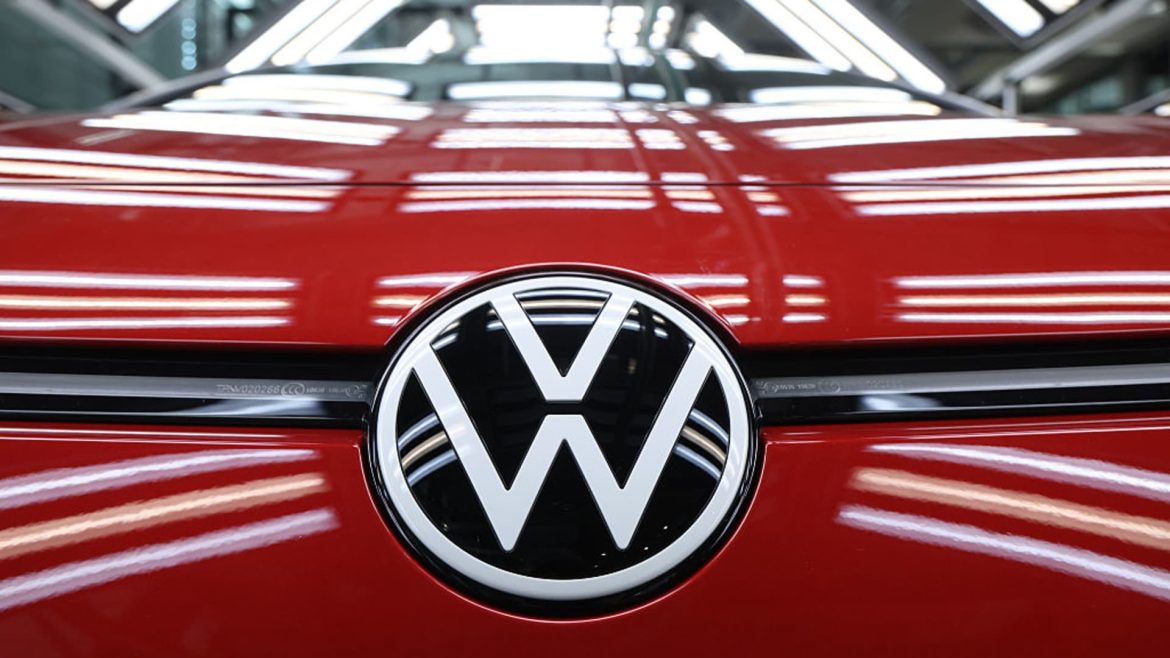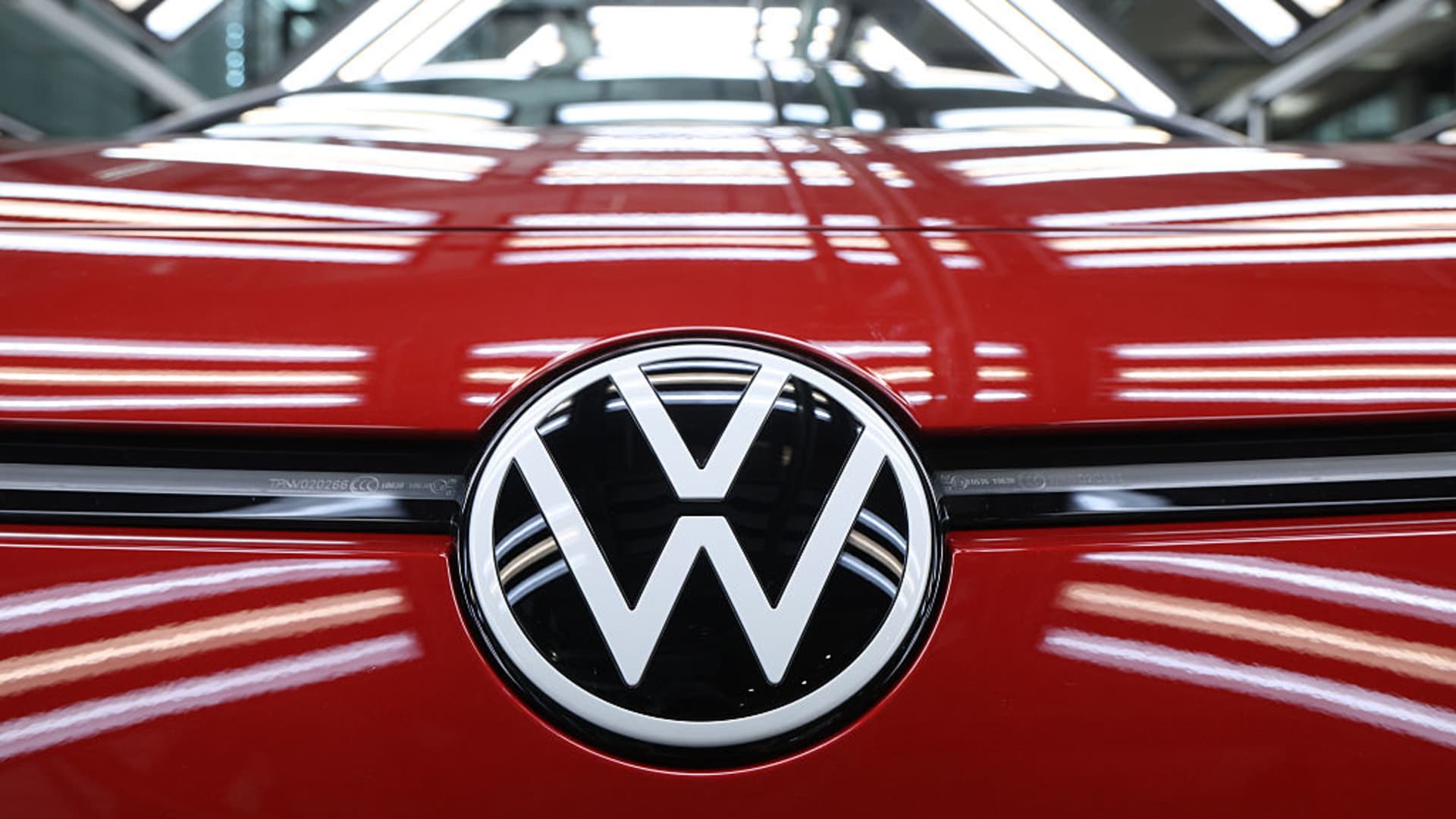Navigating Turbulent Waters: Volkswagen’s Strategic Response to Tariffs
The Global Automotive Industry at a Crossroads
The automotive industry stands at a pivotal juncture, where traditional business models intersect with unprecedented geopolitical and economic challenges. Among these challenges, tariffs have emerged as a formidable disruptor, reshaping the competitive landscape and forcing industry giants to recalibrate their strategies. Volkswagen, a titan of the automotive world, finds itself in the eye of this storm, grappling with the far-reaching implications of trade barriers that threaten to upend its carefully constructed global supply chains and market strategies.
The Tariff Conundrum: A Double-Edged Sword
Tariffs, designed to protect domestic industries by imposing taxes on imported goods, have become a double-edged sword for multinational corporations like Volkswagen. On one hand, they aim to shield local manufacturers from foreign competition, fostering domestic growth. On the other hand, they introduce significant complexities for companies deeply embedded in global supply networks. For Volkswagen, this translates into a delicate balancing act between maintaining profitability and preserving its competitive edge in international markets.
The U.S. tariffs, in particular, have sent shockwaves through Volkswagen’s operations. These tariffs have increased the cost of importing vehicles and components, directly impacting the company’s bottom line. Volkswagen’s financial reports reveal a stark reality: the company’s earnings have taken a hit, prompting a downward revision of its annual financial guidance. This adjustment underscores the tangible impact of tariffs on Volkswagen’s financial health and strategic outlook.
The Uncertainty Paradox: Planning in a Volatile Landscape
One of the most daunting challenges Volkswagen faces is the inherent unpredictability of the trade landscape. The fluid nature of tariffs and trade policies makes long-term planning a formidable task. Volkswagen’s executives have openly acknowledged the difficulty in accurately quantifying the long-term impact of these tariffs. This uncertainty forces the company to adopt a cautious approach, weighing potential risks and benefits before making significant investments or strategic shifts.
The inability to predict future trade relations with certainty creates a paradox for Volkswagen. While the company must remain agile to respond to immediate challenges, it also needs to make long-term investments in research, development, and infrastructure. This delicate balance requires a nuanced strategy that allows Volkswagen to navigate the present while preparing for an uncertain future.
Volkswagen’s Strategic Playbook: Adapting to the New Normal
In response to the tariff-induced turbulence, Volkswagen has developed a multifaceted strategy to mitigate the impact and position itself for long-term success. This strategy encompasses several key initiatives:
Cost Optimization: Streamlining Operations
Volkswagen is actively seeking ways to reduce costs throughout its operations. This includes streamlining production processes, negotiating better deals with suppliers, and identifying areas where efficiency can be improved. By making the overall operation leaner and more efficient, Volkswagen aims to offset the increased costs associated with tariffs. This cost optimization strategy is not merely a reactive measure but a proactive step towards building a more resilient and adaptable business model.
Price Adjustments: A Delicate Balancing Act
In some cases, Volkswagen may be forced to raise prices on its vehicles to offset the impact of tariffs. However, this is a delicate balancing act, as raising prices could make Volkswagen less competitive in price-sensitive markets. The company must carefully consider the price elasticity of demand for its vehicles and adjust prices accordingly. This requires a deep understanding of consumer behavior and market dynamics, ensuring that any price adjustments do not alienate customers or erode market share.
Regional Focus: Tailoring Strategies to Local Markets
Volkswagen is increasingly focusing on regional strategies, tailoring its products and marketing efforts to meet the specific needs and preferences of different markets. This allows the company to be more responsive to local market conditions and reduce its reliance on global supply chains. By adopting a regional approach, Volkswagen can better navigate the complexities of tariffs and trade barriers, ensuring that its products remain competitive and appealing in each market.
Investment in Localization: Building Resilience
To circumvent tariffs and reduce its exposure to trade tensions, Volkswagen is investing in local production facilities in key markets. By producing vehicles and components locally, the company can reduce its reliance on imports and potentially qualify for preferential trade agreements. This localization strategy not only helps Volkswagen mitigate the impact of tariffs but also strengthens its presence in local markets, fostering deeper connections with customers and stakeholders.
Embracing Electrification: A Strategic Pivot
Volkswagen is accelerating its transition to electric vehicles (EVs), viewing it as a long-term strategic advantage. EVs are less susceptible to tariffs on traditional internal combustion engine components. Additionally, government incentives and consumer demand for EVs are growing globally, making this a promising area for future growth. By embracing electrification, Volkswagen positions itself at the forefront of a rapidly evolving industry, poised to capitalize on the shift towards sustainable mobility.
The United States: A Market of Opportunities and Challenges
Despite the challenges posed by tariffs, the United States remains a strategically important market for Volkswagen. The company has reiterated its determination to use U.S. sales growth to offset declining sales in China and Europe. Volkswagen recognizes the potential of the U.S. market and is committed to investing in its growth. However, the company’s success in the U.S. will depend on its ability to navigate the complex web of trade regulations and compete effectively with domestic and international automakers.
Beyond Tariffs: A Convergence of Challenges
While tariffs present a significant challenge, they are not the only hurdles Volkswagen must overcome. The company is also grappling with a confluence of other challenges, including:
Political Uncertainty: Navigating Geopolitical Shifts
Geopolitical instability and shifting political landscapes create uncertainty and make it difficult to predict future trade policies. Volkswagen must remain vigilant, monitoring political developments and adapting its strategies accordingly. This requires a deep understanding of global politics and the ability to anticipate and respond to changes in the geopolitical landscape.
Growing Competition: The Battle for Market Share
The automotive industry is becoming increasingly competitive, with new players and disruptive technologies emerging at a rapid pace. Volkswagen must stay ahead of the curve, continuously innovating and adapting to maintain its market position. This requires a relentless focus on research and development, as well as a willingness to embrace new technologies and business models.
Technological Disruption: The Rise of Electric and Autonomous Vehicles
The rise of electric vehicles, autonomous driving, and connected car technologies is transforming the automotive industry. Volkswagen must invest heavily in these areas to stay competitive. This requires a significant commitment of resources and a willingness to take calculated risks. By embracing technological disruption, Volkswagen can position itself as a leader in the next generation of automotive innovation.
The Ripple Effect: Implications for the Broader Industry
Volkswagen’s experience with tariffs has broader implications for the entire automotive industry. The industry’s globalized supply chains make it particularly vulnerable to trade disruptions. As companies like Volkswagen adjust their strategies to mitigate the impact of tariffs, other automakers are likely to follow suit. This could lead to:
Increased Localization: A Shift Towards Regional Production
Automakers may increasingly shift production closer to end markets to reduce their reliance on imports. This localization trend could reshape the global automotive landscape, with production hubs emerging in key markets to serve local demand. This shift could also lead to the development of new supply chains and logistics networks, further integrating regional economies.
Supply Chain Diversification: Reducing Dependence on Single Markets
Companies may seek to diversify their supply chains to reduce their dependence on any single country or region. This diversification strategy could involve sourcing components from multiple suppliers in different locations, ensuring a steady supply of materials and reducing the risk of disruptions. This approach could also foster greater collaboration and innovation among suppliers, driving the development of new technologies and processes.
Consolidation: The Rise of Industry Giants
The automotive industry may experience further consolidation as companies seek to achieve economies of scale and share the costs of adapting to new technologies and trade realities. This consolidation could lead to the emergence of industry giants, capable of leveraging their size and resources to dominate the market. However, it could also create challenges for smaller players, who may struggle to compete with larger, more established competitors.
Innovation: Driving the Future of Mobility
Tariffs and other challenges may spur innovation as companies seek to develop new technologies and business models to stay competitive. This innovation could drive the development of new products and services, transforming the automotive industry and creating new opportunities for growth. By embracing innovation, Volkswagen and other automakers can position themselves at the forefront of the next wave of automotive evolution.
Conclusion: Charting a Course Through Uncharted Waters
Volkswagen’s journey through the turbulent waters of tariffs and trade uncertainty serves as a microcosm of the broader challenges facing the global automotive industry. The era of predictable trade and stable supply chains appears to be over, replaced by a new reality characterized by uncertainty, volatility, and constant disruption. To thrive in this new environment, Volkswagen and other automakers must be agile, innovative, and adaptable.
The road ahead will be challenging, but those who can navigate the turbulent waters will be well-positioned to succeed in the long run. Volkswagen’s response to the tariff storm will undoubtedly shape its future and provide valuable lessons for the entire automotive industry. By embracing change, fostering innovation, and remaining resilient in the face of adversity, Volkswagen can chart a course through uncharted waters and emerge stronger and more competitive than ever before. The journey may be fraught with challenges, but the destination promises a brighter, more sustainable future for the automotive industry and the world.





